Tukana - Husait i Asua? (1984)
ジャンル : コメディ, ドラマ
上映時間 : 2時間 0分
演出 : Chris Owen, Albert Toro
脚本 : Albert Toro
シノプシス
Tells the story of a university drop out who returns to his village in Buka Passage, Bougainville. He drifts into rootlessness among bad companions, becoming progressively alienated from his parents and village life, with tragic results.
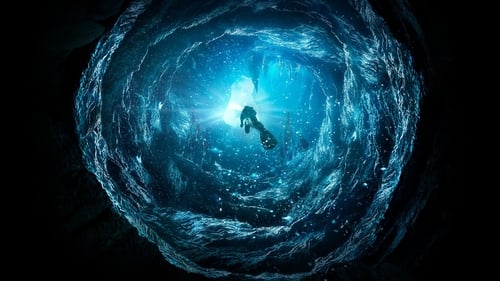
パプア・ニューギニアの熱帯雨林の奥地に存在する、巨大な洞窟体系「エスペトリ・エサーラ」。地球上で最も大きく、美しく、近づきがたい、その場所は人が足を踏み入れてはいけない聖域であった。そんな洞窟の謎を解き明かそうと、大富豪の実業家カールのスポンサードを受け、経験と判断力を誇る冒険家フランク率いる探検隊が、ハイテク装備とダイビングを駆使した調査に挑む。
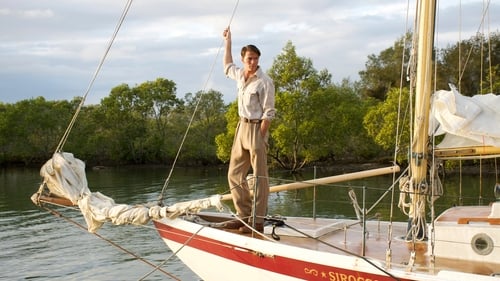
A mostly true account of future Hollywood star Errol Flynn's sea adventures in the early thirties, sailing from Australia to Papua in search of gold, along with his best friend Rex, a former Canadian smuggler; Dook, a handy English gentleman; and Charlie, a grumpy old sailor.

After squandering his grant money, despondent and recently widowed anthropologist James Krippendorf must produce hard evidence of the existence of a heretofore undiscovered New Guinea tribe. Grass skirts, makeup, and staged rituals transform his three troubled children into the Shelmikedmu, a primitive culture whose habits enthrall scholars. But when a spiteful rival threatens to blow the whistle on Krippendorf's ruse, he gets into the act as well.
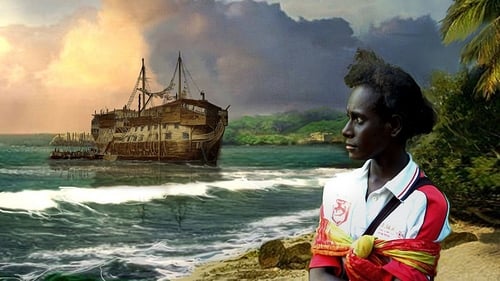
As a war rages on in the province of Bougainville in Papua New Guinea, a young girl becomes transfixed by the Charles Dickens novel Great Expectations, which is being read at school by the only white man in the village. In 1991, a war over a copper mine in the South Pacific tore the island of Bougainville apart. The reclusive “Popeye” (Hugh Laurie) offers the children in fourteen-year-old Matilda’s tiny village an escape with Charles Dickens' Great Expectations. But on an island at war, fiction can have dangerous consequences.
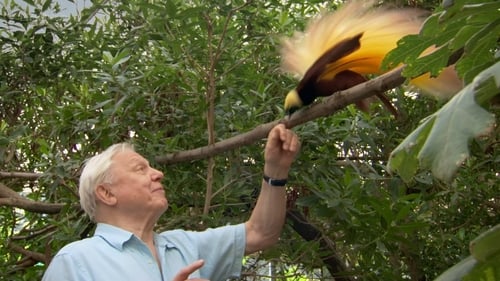
David Attenborough tells the remarkable story of how these " birds of paradise " have captivated explorers , naturalists, artists, filmmakers and even royalty.

An Australian widower living in New Guinea starts a relationship with a woman very similar to his much-beloved wife, but their life together turns out to be far from the imagined romantic ideal.

A documentary that reveals the underbelly of the global aid and investment industry. It's a complex web of interests that span the earth from powerful nations and multinational corporations to tribal and village leaders. This documentary offers unique insights into a multi-billion dollar world by investigating how aid dollars are spent.

Two anthropologists married to each other go to an island off of Papua New Guinea for field research in pre-World War II. Eventually the war breaks out and many lives are disrupted and complicated.

Tells the story of a university drop out who returns to his village in Buka Passage, Bougainville. He drifts into rootlessness among bad companions, becoming progressively alienated from his parents and village life, with tragic results.

The western half of the island of New Guinea has been known by many names including Netherlands New Guinea, West Papua, Irian Jaya and Papua. It is an extraordinary place where snow-capped mountains drain into massive rivers and 250 languages are spoken. For centuries, the world has jostled for control of this rugged, isolated region, with its abundant natural resources and strategic position. Through eyewitness accounts and rare archival film, this fascinating documentary paints a picture that is intimate in detail but epic in scope. It is a sweeping saga of colonial ambitions, cold war sellouts and fervent nationalism, which highlights the role of players such as Australia and the UN at crucial points.

Joe Leahy is the half-caste son of one of the first explorers of the Papua New Guinean interior. The documentary explores his relationship with the tribes that work his coffee plantation and explores what happens when the coffee market situation becomes more difficult.

Aliko & Ambai is a feature film about two young women facing the challenges of growing up in the beautiful Eastern Highlands of Papua New Guinea. The challenges are significant: tribal conflict, poverty, bullying, domestic violence,and forced marriage. Aliko struggles to complete her education and Ambai searches to escape her abusive home and reunite with her biological father. They navigate the many obstacles in their lives and endeavour to build brighter futures for themselves, supported by the strength of friendship.

The film's title is borrowed from a Dani fable that Gardner recounts in voice-over. The Dani people, whom Gardner identifies mysteriously as "a mountain people," believe that there was once a great race between a bird and a snake, which was to determine the lives of human beings. Should men shed their skins and live forever like snakes, or die like birds? The bird won the race, dictating that man must die. The film's plot revolves around two characters, Weyak and Pua. Weyak is a warrior who guards the frontier between the land of his tribe and that of the neighboring tribe. Pua is a young boy whom Gardner depicts as weak and inept.
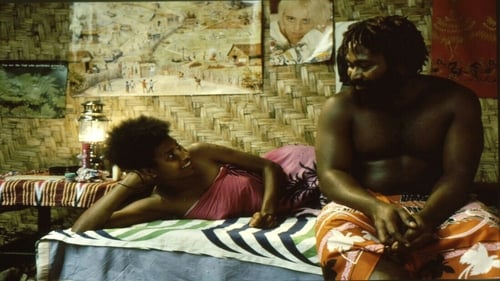
A man encounters colorful characters while driving a taxi in Papua New Guinea.

John Waiko is the first Papua New Guinea man to graduate with a PhD and be appointed a professor. He returns to the Binandere clan and his small village of Tabara in the Northern Province of PNG. Once there, he has to organise a celebration for his achievements with his family’s help. Since he has been away for most of his life, he has no recognised wealth in the village (the pigs used for gift giving), nor a network of supporters or knowledge of the preparation and rituals for having such a celebration. He wants the event to happen quickly but that’s not the way it works in Tabara. Man without pigs focuses on the antagonism aroused by the clash between traditional customs and Western values in this remote PNG community.

National Geographic joins author and explorer Piers Gibbon as he investigates one of mankind's ultimate taboos: cannibalism.
Gibbon treks into the rain forest of Papua New Guinea to find tribe members who ate human flesh. And, meets the members of the once-feared Biami tribe to witness their ritual techniques.

The Road to Home (2015), tells the story of Benny Wenda, the Nobel Peace Prize nominated West Papuan independence leader, in his ongoing struggle to free his people from Indonesian colonial rule. Since his dramatic escape from an Indonesian prison in 2002, where he was held in isolation and tortured as a political prisoner, Benny has been an unceasing crusader on the international scene, campaigning to bring about an end to the suffering of his people at the hands Indonesia's brutal colonial regime. Granted political asylum in the UK, Wenda's freedom of movement was restricted in 2011 when, at the behest of the Indonesian government, Interpol issued a 'red notice' putting him at extreme risk of extradition should he travel.

This Traveltalk series short visits Papua and Kalabahai.

Melissa and Jonathan are worlds apart and when they meet, Jonathan's controversial ideas mean their conversations erupt in a fiery clash of minds.

This is a film about a Naval Air Corps Director who hates the war. Director Honda uses this film to ask the question "What is war?", showing the human bonds between Japan and America, Japanese military tactics which had little regard for life, and the attitude of Japanese military personnel who treated their actions as if they were just doing a job. This film contains few battle scenes, concentrating instead on the love stories of young officers and female members of the community in this lonely air base.











